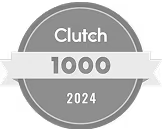It takes three hours to get from Berlin, top European startup hub to Poznan, 500k City in Poland, where 20% of the population are university students. Many of them decide to pick a career path in IT, as software engineers, QA specialists or User Experience designers. A committed and very active tech community in Poznan associates professionals who share their knowledge and expertise gained during projects performed for the US, European and Middle East partners. Our software house contributes to it widely. Thanks to the experience gained by organizing our events: Dev College, Front.radar and Py_tej we went a few steps further and spread the know-how in Berlin.

Following the invitation of our friend & business partner, Linda Grönlund, we decided to hit the Hauptstadt and share some UX-related expertise with the community in beautiful premises of The Factory Mitte. Remote video conferences, standups, dailies are widely introduced to the world of startups and new technologies, although nothing beats meeting in person.
The $1 x $10 x $100 rule of research
Maria & Kasia served in several successful digital projects, performing UX workshops, scoping sessions and Google Design Sprints. After a short presentation underlining the role of research, they performed hands-on workshops session with nearly 40 creatives, managers, designers, but also beginners willing to move on if their projects.

The main thesis of the theoretical part said, that every $1 spent on research equals to $10 spent on changes in design, which if not performed results in $100 spent on changes during the development stage. Many founders seek savings in UX, ignoring the fact that well-performed research allows them to reduce more resource-absorbing activities.
UX research for a digital product
The insightful presentation was followed by nearly 90 minutes of the practical session, where Kasia & Maria performed two major exercises, spread into several smaller tasks;
- Exercise 1: finding errors in a research Questionnaire; the participant had to review a Questionnaire prepared for the research purposes, verify them and learn what other mistakes can be done at this stage.
- Exercise 2: Observation and interview (IDI)
- Analysis of the website: target users (personas) - the participants were preparing brief personas of the users, to be re-used in the further stages
- Analysis of the website: the purpose of the visit and jobs to be done (tasks) - discovering what purposes lead potential users to use and benefit from the website.
- Writing scenarios + questions; for the purposes of an interview, the participants prepared their own questions and scenarios to be used during collaboratively performed research. Each team member took the role of an interviewer and interviewed and share aloud his impressions from the experience.
- Summary and conclusions

The purpose of the exercises was not only to display some good practices during the research but also mark and suggest possible errors, which commonly take place. It also encourages to verify their hypothesis and seek engagement with the users from the very beginning, which is considered as a good practice. One of the major rules was to note all of the comments and expressions, marking the research aspect of the exercise.
Benefits of being together: UX is about empathy
After the workshops, we hit one of the outstanding Berlin pizzerias to gather feedback from our friends and partners and discuss further plans. Nothing beats well-backed pizza and there’s no better way to share experiences rather than simple, direct conversation. We heard several stories of founders and professionals facing different kind of obstacles and goals. The work will be never well-done without understanding.
Wyświetl ten post na Instagramie.
Post udostępniony przez Merixstudio (@merixstudio) Kwi 11, 2019 o 7:58 PDT
On a daily basis, Maria and Kasia support SMBies and mature businesses by performing User Experience workshops, UX audits and research to fully recognize the real needs of their users. Many young founders are experts in their fields, but from time to time requiring support in early stages of product design process or software development processes. By getting to know the project we are able to recommend whatever it needs in-depth research, one-day scoping session or extended UX workshops that last up to two days. In-house workshops are an extremely effective way to transfer know-how and gather requirements of digital products and services. Although they can be well-performed remotely, we believe that the Berlin-based companies can benefit from the nearby location of Poznan. After all, one dollar (or euro) spend on research-related activities saves one hundred on development.
Navigate the changing IT landscape
Some highlighted content that we want to draw attention to to link to our other resources. It usually contains a link .
.svg)

.webp)



.svg)
.svg)
.avif)

.avif)
.avif)
.avif)
